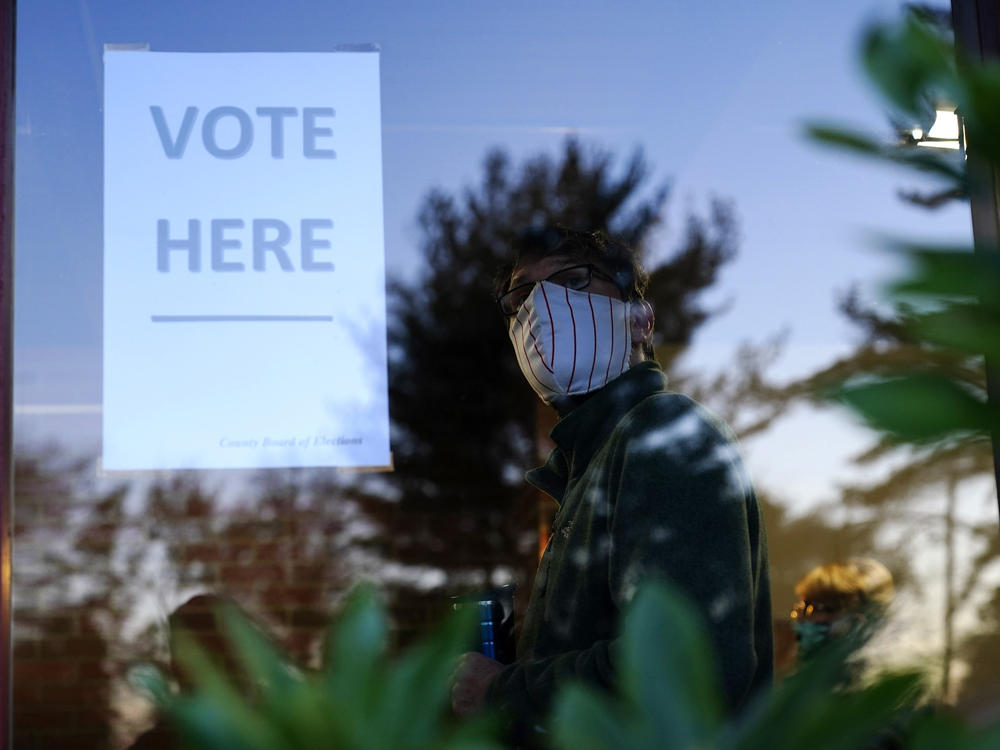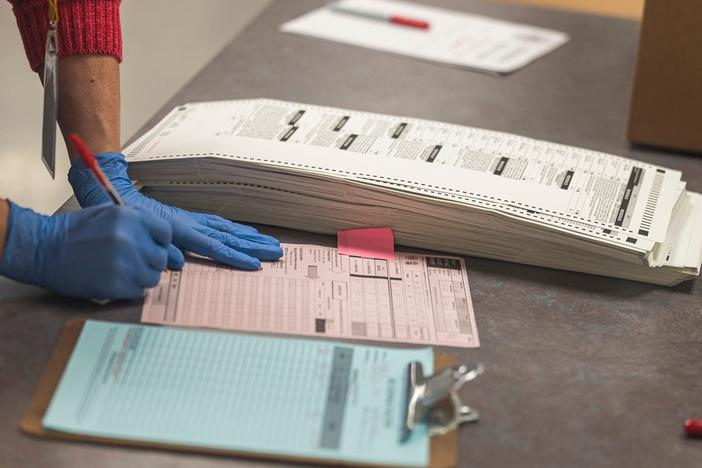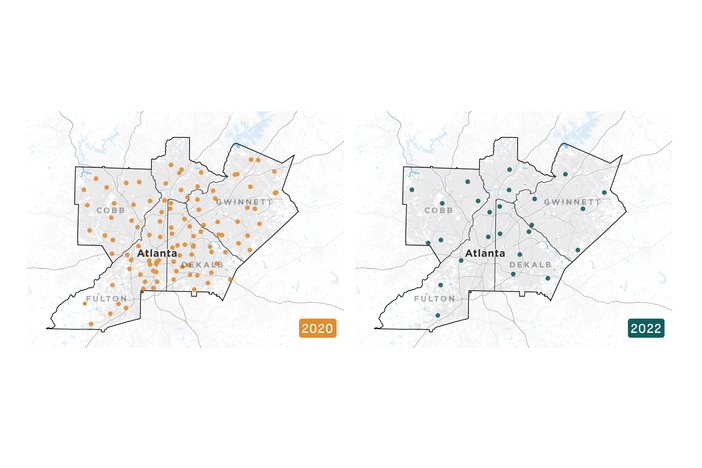Section Branding
Header Content
Pennsylvania voting officials are still fighting election deniers
Primary Content
Updated February 9, 2023 at 7:05 AM ET
It's been 27 months since President Biden won the 2020 election.
But that election continues to haunt officials in the Philadelphia suburb of Delaware County, Pa., who are still dealing with lawsuits alleging election fraud, despite no substantial evidence, and ongoing criticism from some local residents during public meetings.
For William Martin, the county's solicitor, the level of frustration hit a breaking point last month during a county council meeting.
"I am profoundly offended to listen to baseless allegations of fraud against me and against other county workers," Martin said after sitting through another round of public comments. "It's time to put up or shut up. If you think there is fraud, sue me. Sue me! Sue me personally. Because then when it gets thrown out, I'll sue you for abuse of process. Sue me!"
Many other local officials in Pennsylvania are still grappling with the aftermath of the 2020 election. More recent political contests in that swing state have become a hotbed for election deniers and misinformation. And election watchers are concerned about how that could spill over into upcoming elections, including next year's presidential race.
A few weeks ago, about three hours away from Delaware County in central Pennsylvania, officials in Lycoming County urged residents to be respectful during a meeting about the results of a controversial hand recount conducted in January for ballots cast more than two years ago in the 2020 election.
"If you're here to get in anyone's face or intimidate someone, you're in the wrong room. You might as well leave right now," said Scott Metzger, a Republican county commissioner, who noted discussions about the recount had become "very heated."
Lycoming County election officials said they found no significant difference between the recount and their original tallies from November 2020. The results, the county's board of elections said in a statement, "confirm that the vote totals were not inaccurate by thousands of votes as was claimed."
Still, many election watchers are bracing for more misinformation from election deniers.
"Those counties are dealing with people who, over and over, no matter how many times they've seen the evidence of the integrity of the election, continue to come and yell and be insulting," says Lisa Schaefer, who's the executive director of the County Commissioners Association of Pennsylvania.
Tensions may have cooled somewhat recently, during this break from major elections, but Schaefer says "those pressures are absolutely still there."
The reach election deniers have through social media, Schaefer adds, has made it especially hard to fight off misinformation.
'We have potential dangers ahead'
A lot of the confusion is centered around a Pennsylvania state law that started allowing all voters in Pennsylvania to vote by mail in time for the 2020 election. Nationally, some leading figures in the Republican Party, most notably former President Donald Trump, have railed against mail voting. And in the state, many Republicans have been attacking a way of voting that they once supported, turning mail-in voting into a partisan flashpoint.
"We're a purple state, so it makes for a bit of a contentious conversation at times around democracy," says Khalif Ali, executive director of the advocacy group Common Cause Pennsylvania.
After last year's midterm elections, there was a sign of hope, according to Susan Gobreski, who chairs the government policy committee of the League of Women Voters of Pennsylvania: The state's most high-profile election denier, who was the Trump-backed Republican candidate for governor, lost.
"People are looking for our democracy to be preserved and for their participation to be valued and for voters to be making decisions and for votes to count," Gobreski says. "I think people reacted to the misinformation that was out there by showing up. I think that's a really good sign."
Still, Gobreski sees Pennsylvania walking on a balance beam right now.
"It could tip in either direction if we don't watch for efforts to undermine confidence, if we don't watch out for efforts to interfere with voters," Gobreski adds. "We have potential dangers ahead."
Many county officials and election watchers are looking toward potential legislative reforms to Pennsylvania's election system that could help fend off any disruptions in 2024. One notable concern is that current state law does not allow election officials to prepare mail-in ballots for counting — a process known as "pre-canvassing" — before the last day of voting. That has frustrated many officials, given increasing pressure to report results as soon as possible and the potential festering of misinformation as people wait for tallies in close races.
But for Martin, the Delaware County solicitor, the key to defusing the ongoing election turmoil in Pennsylvania lies in how Republicans in the state talk about voting by mail going forward.
"I'm not sure that I see any significant break point or change that's likely to occur in the next several years — with the possible exception of a recognition by the Republicans that they're doing themselves a disservice by disparaging mail-in votes," Martin says.
Edited by: Benjamin Swasey
Copyright 2023 NPR. To see more, visit https://www.npr.org.
Bottom Content




